Improving Maternal and Child Nutrition Through the ANRiN Project
The Accelerating Nutrition Results in Nigeria (ANRiN) project is pioneering support to transform nutrition practices for Mothers, Infants, and Young Children (MIYCN) across Nigeria.
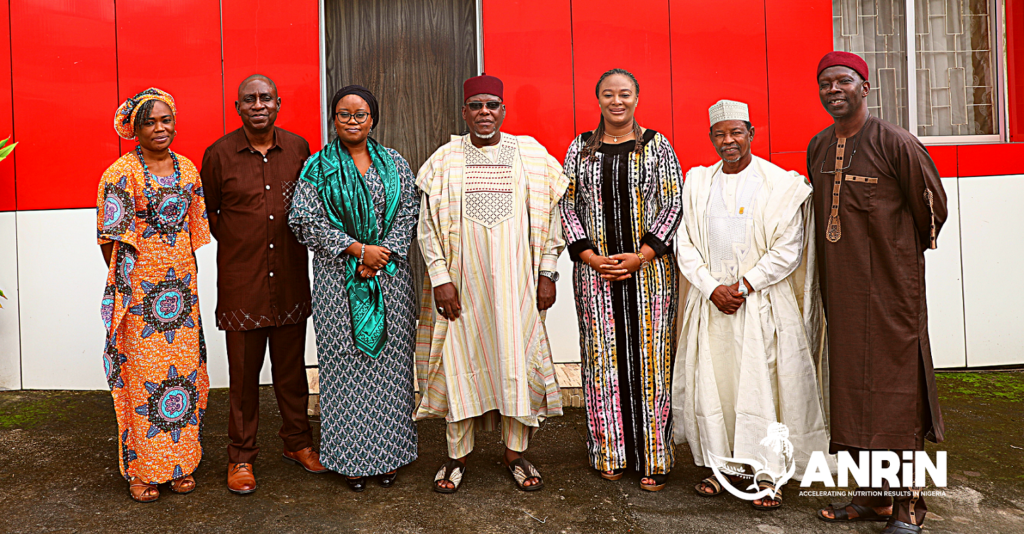
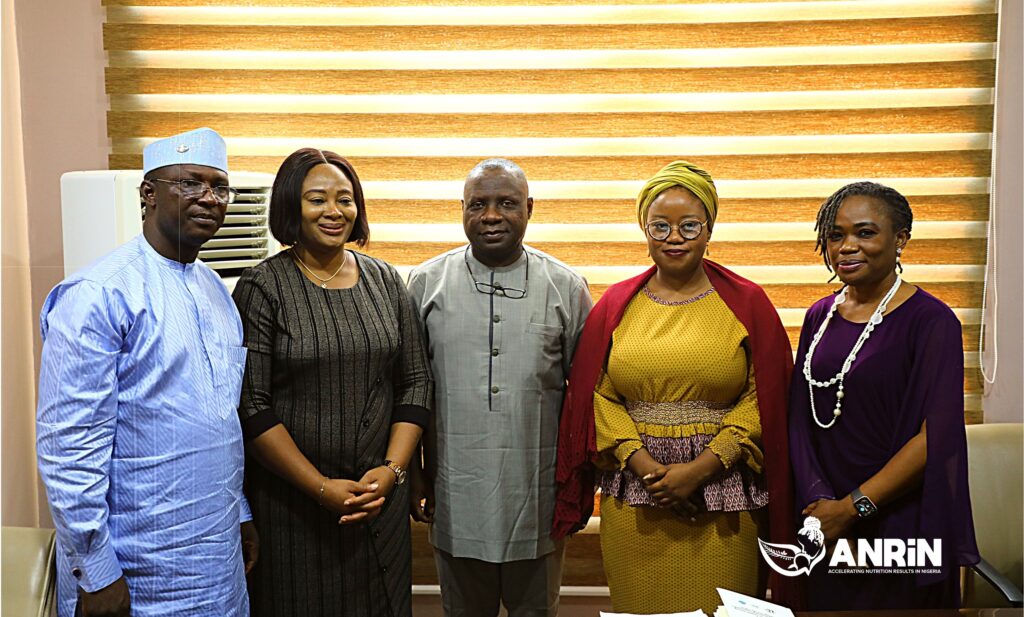
Nigeria continues to grapple with the burden of malnutrition, which affects mothers, infants, and young children. About 32% of children under the age of five years experienced stunting (measuring too low for their age) in 2020, while 6.5% were said to have wasting (weighing too low for their age). An even higher percentage of women of reproductive age (55%), aged 14-49 years were found to have anemia, and only nearly 29% of infants aged 0-5 months were exclusively breastfed. These indices informed the Accelerating Nutrition Results in Nigeria (ANRiN) project, a World Bank-financed project implemented by the Federal Ministry of Health (ANRiN Project Management Unit).
Spearheaded by the Social and Behavior Change Communication (SBCC) component, ANRiN employs a multifaceted approach, including a national mass media campaign and interpersonal communication through faith leaders. In the first phase of the project, the Centre for Communication and Social Impact (CCSI), a non-state actor on the project had the objective to implement an innovative Social and Behaviour Change Communication (SBCC) campaign through faith leaders in the ANRiN project states to improve knowledge, attitude, and practices around maternal, infant, and young child nutrition (MICYN).
Nigeria’s deeply religious society provides fertile ground for leveraging the influence of faith leaders in promoting healthy nutrition. Recognizing this, the ANRiN project strategically engages with these leaders, understanding the profound trust and belief placed in them by their communities.
CCSI supported this crucial component through data-driven approach, informed by research on social, cultural, religious, and gender-related factors impacting nutrition behaviors. Innovative techniques like “netmapping” helped map faith leader networks, maximizing outreach.
The formative research conducted in 2021 explored the behaviors, knowledge, attitudes, and practices of MICYN, identified the barriers and drivers that influence the uptake of MIYCN services, and identified appropriate mechanisms and methods for engaging and leveraging faith leaders and organizations to promote the adoption of MIYCN behaviors and service uptake.
The project engaged the leadership of the Christian Association of Nigeria (CAN) and Jama’atu Nasril Islam (JNI) to garner support through advocacy. Critical stakeholders from these faith-based organizations joined CCSI, ANRiN project management unit (PMU), and World Bank in a co-creation workshop to steer the course of the project. The faith leaders reviewed and refined ANRiN SBCC messages and materials (Christian and Islamic Perspectives, Guides, and Leaflets), and their ideas informed implementation strategies and approaches.
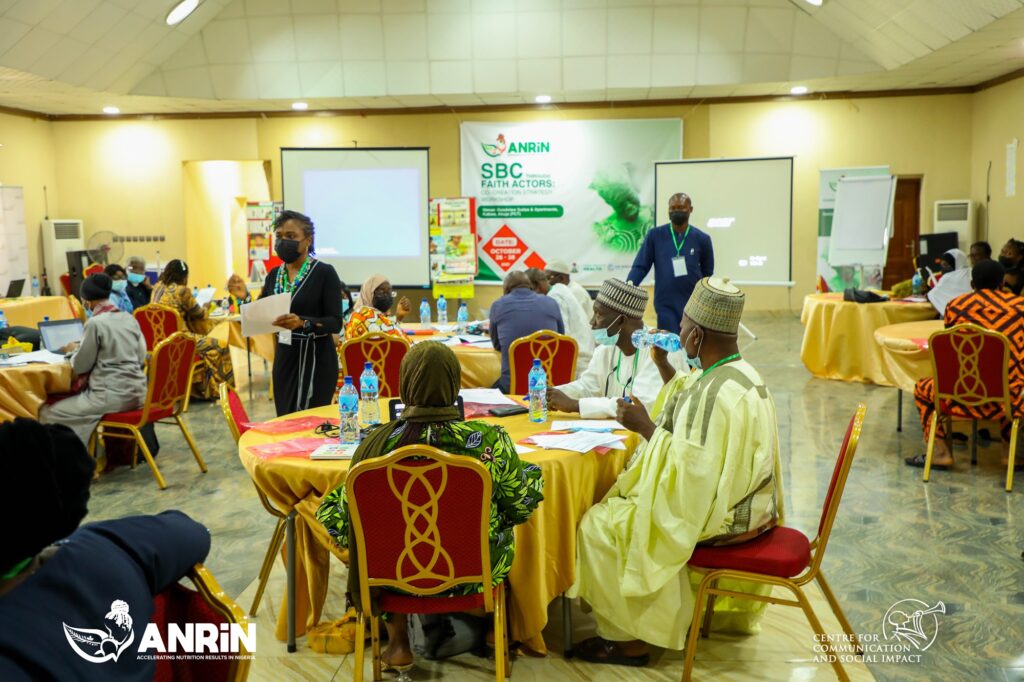
Engagement with Faith Leaders
Faith-based organizations facilitate social connections and provide opportunities for collective action. This approach is particularly impactful due to the profound trust and belief placed in faith leaders, reinforced by scriptural backing. By aligning messages with religious teachings from both the Quran and the Bible, ANRiN imbues its initiative with deep significance and resonance, underscoring the importance of research in shaping effective interventions.
Through the non-state actors, CCSI selected 1,016 influential faith leaders to build their capacity to deliver MICYN messages. Today, the faith leaders have delivered 8,639 MIYCN messages during activities and events, spanning sermons, naming ceremonies, weddings, and community gatherings, which through the aid of the ANRiN SBCC materials, have successfully delivered messages on maternal, infant, and young child nutrition practices to millions.
With a focus on reaching both men and women, ANRiN empowers faith leaders to deliver impactful messages through sermons and faith-based social networks. By integrating scripture-based teachings, faith leaders connect with their congregations on a deeper level, fostering conviction and encouraging the adoption of healthy practices.
Through faith leaders, ANRiN has reached over six million individuals, encouraging pregnant women to uptake antenatal services and take pregnancy supplements, and families to practice early initiation of breastfeeding, exclusive breastfeeding, complementary feeding, and good hygiene – with a key highlight of the audience comprising men.
At the heart of the engagement with faith leaders, is the socio-ecological model, which recognizes the impact of various levels of influence on individual behaviour. Through partnerships with these organizations, ANRiN extends its reach beyond individual behaviour change to address community-level factors such as access to nutritious foods and social support networks. Collaborating with faith leaders, this taps into existing social structures and cultural norms to promote healthy nutrition practices, emphasizing balanced diets, dietary diversity, and food safety.
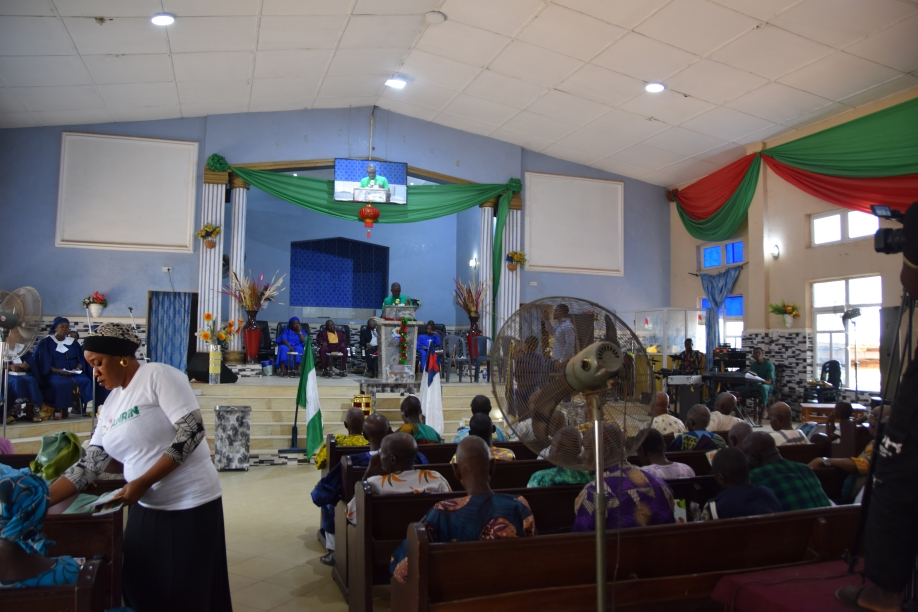
Sustaining Progress: The Next Phase of ANRiN
The second phase of the ANRiN project in 2024 is designed for faith leaders to act as catalysts, driving the process and making it become a part of the faith community’s ecosystem for sustainability. Beyond the efforts of CAN and JNI, the project is engaging the Kukah Centre and Sultan Foundation for high-level advocacy to influential religious and traditional leaders, especially those with a large following to pass MIYCN messages to Nigerians irrespective of socioeconomic status and background.
To demonstrate the effort of the Federal Government of Nigeria in changing the maternal, infant, and young child narrative, the National Council on Nutrition through the Office of the Vice President is partnering with the ANRiN project of the Federal Ministry of Health with support from World Bank, to engage prominent faith and traditional leaders in a high-level dialogue on nutrition to forge a sustainable path towards a healthier and more nutritionally secure Nigeria.
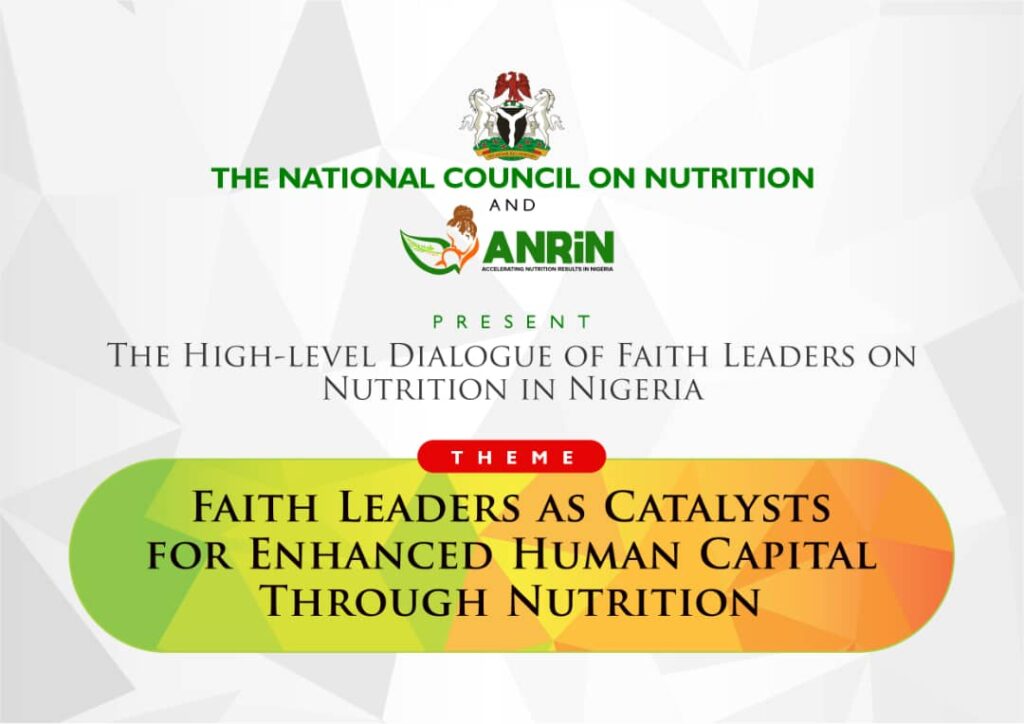
Themed “Faith Leaders as Catalysts for Enhanced Human Capital Through Nutrition,” the high-level summit on April 23, 2024, will focus on establishing sustainable pathways to improve MIYCN practices in Nigeria. Bringing together prominent representatives from Christian and Muslim faiths, as well as influential traditional institutions, the event aims to foster collaboration among these stakeholders.
______________________________________________________________________________________________
About Us
The Centre for Communication and Social Impact (CCSI) is a leading Social and Behaviour Change (SBC) organization with expertise in utilizing evidence from research to implement effective strategies that address barriers preventing designated audiences from adopting recommended behaviors.
Birthed by the Johns Hopkins Center for Communication Programs (JHCCP), Baltimore, USA, and registered in 2001 as a Non-Governmental Organization with the Corporate Affairs Commission of Nigeria, CCSI continues to work towards being the center of excellence in strategic communications in Africa.
Driven by values of integrity, passion, care, innovation, and excellence, CCSI focuses on the central role of strategic communication to impact behaviors, build brands, and provide technical leadership in health and social development.